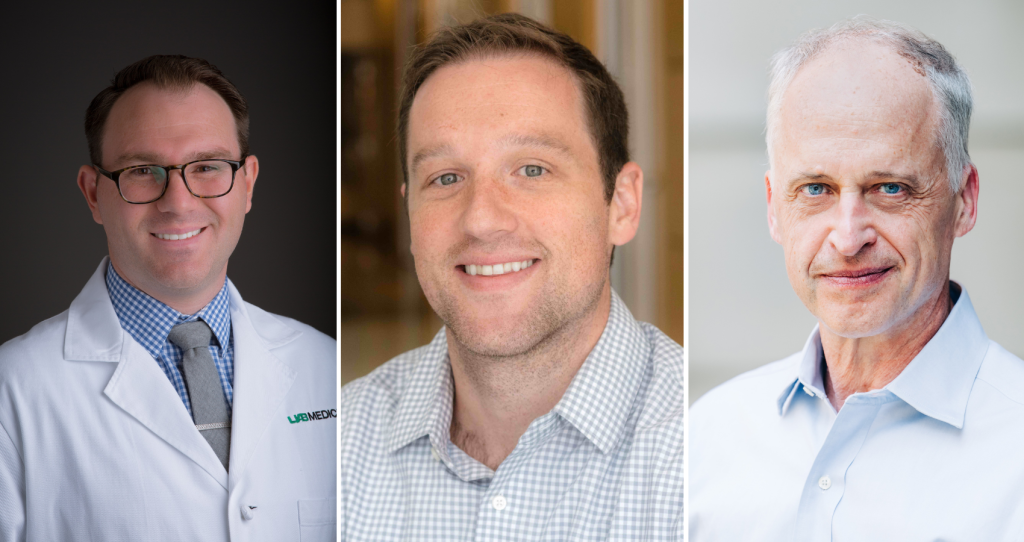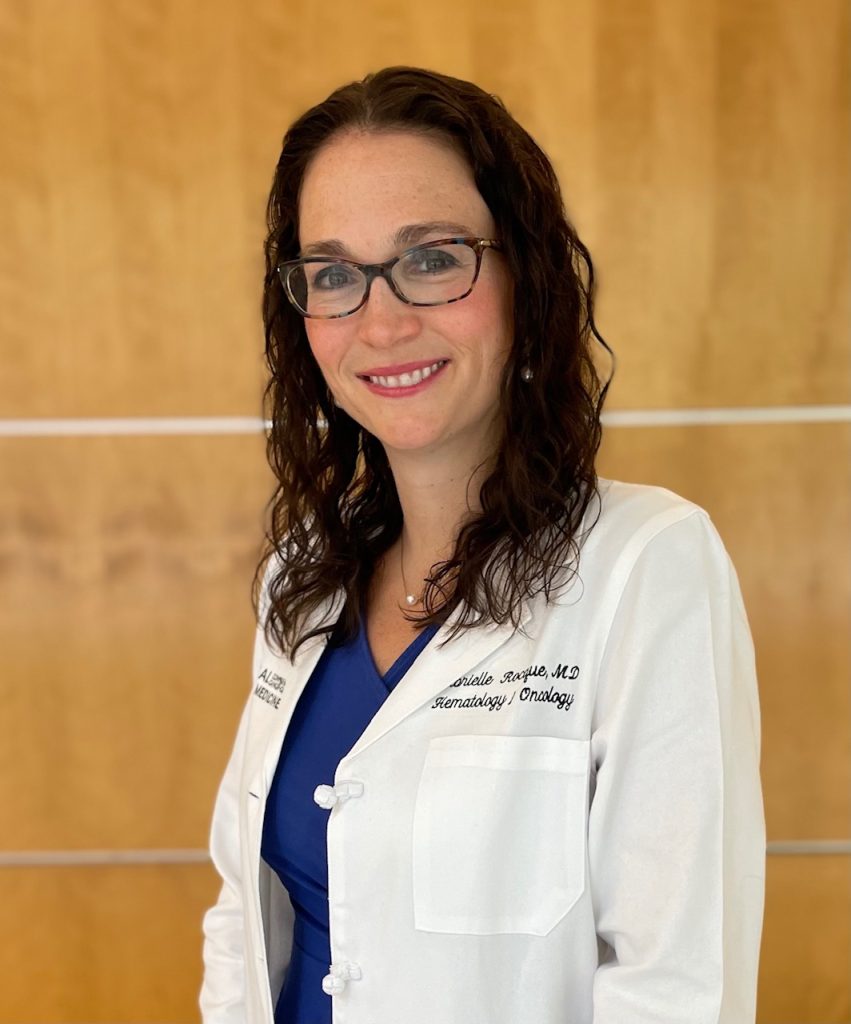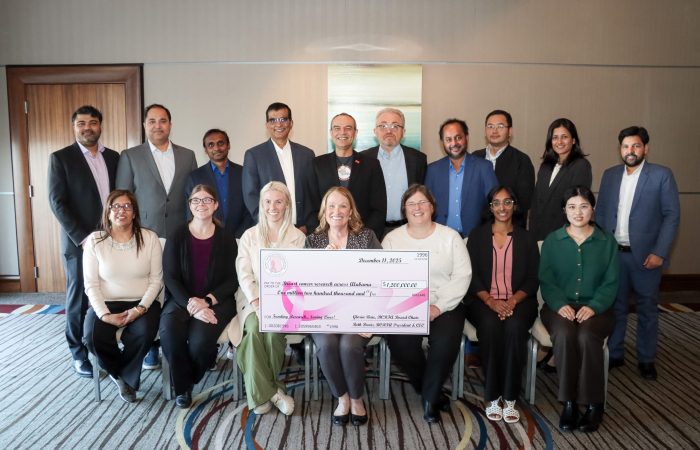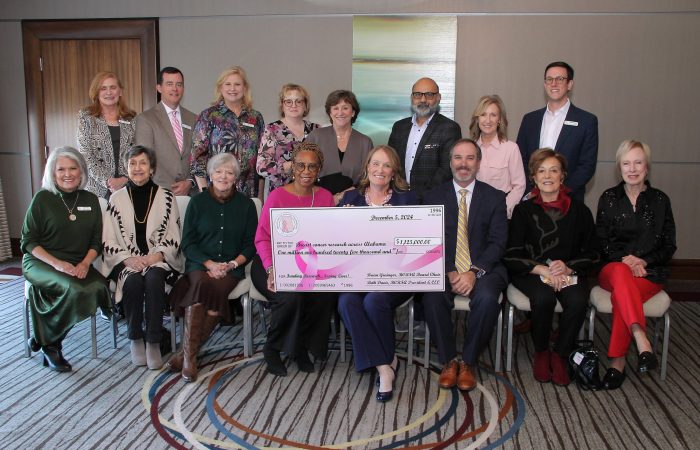The Breast Cancer Research Foundation of Alabama (BCRFA) announces a continued commitment to advancing breast cancer research in 2025 with an impressive $1,200,000 investment.

BCRFA funds three new cancer-related research grants at UAB’s O’Neal Comprehensive Cancer Center
The Breast Cancer Research Foundation of Alabama (BCRFA) is proud to announce the funding approval of three new projects at the O’Neal Comprehensive Cancer Center at UAB. BCRFA’s 2025 investment in these projects totals $140,000. Two of these grants underwent a rigorous peer review process by a panel of UAB faculty members through the O’Neal Invests program. Additionally, BCRFA is funding a special project that was brought for consideration.
O’Neal Invests Awards funded by BCRFA:
Bart Rose, MD, Benjamin Larimer, PhD, and Michael Niederweis, PhD – Validation and rapid detection of Calreticulin as a cancer biomarker
Drs. Rose, Larimer, and Niederweis’ research could lead to a new way of detecting cancer biomarkers, especially pancreatic, colorectal, and breast cancers. A biomarker that is detectable in patients’ blood could increase the chances of a proper cancer diagnosis. This new study targets a potential biomarker called Calreticulin, which is a protein that normally stays inside cells, but goes to the surface under certain conditions, such as during stress caused by chemotherapy. The protein then is released, so Calreticulin in the blood could be a cancer biomarker. The study aims to understand the process and conditions during which Calreticulin is detectable in the blood. They will develop an innovative nanosensor to detect the protein, which could help identify which patients could benefit from follow-up appointments. Eventually, nanosensors could be used in portable devices that could enable rapid and local cancer diagnosis and early targeted treatments.

Jia Xu, PhD – Synergistic antitumor effect of combined EZH2 and Aurora Kinases inhibition in triple-negative breast cancer
Dr. Xu’s Catalyst Project plans to study a potential TNBC combination therapy with an Aurora Kinase inhibitor and EZH2-targeting drug to increase the killing of cancer cells. This targeted drug may kill more cancer cells when combined with an Aurora Kinase protein inhibitor at the same time. If successful, it could lead to a new, more effective treatment for triple-negative breast cancer, which currently has very limited treatment options available.

Gabrielle Rocque, MD – Evaluating quality of life in patients forgoing chemotherapy for treatment of early-stage hormone receptor positive, Her2 negative breast cancer
The goal of this pre-R01 study by Dr. Gabrielle Rocque is to assess whether patients with lower genomic risk who receive optimal hormone therapy with targeted therapy without chemotherapy have similar recurrence and survival outcomes compared to those who do receive chemotherapy. The study looks at whether or not some breast cancer patients can utilize hormone therapy and a targeted drug called a CDK4/6 inhibitor instead of chemotherapy. The study will evaluate quality of life through evaluating factors such as recurrence and survival outcomes when compared to patients who receive chemotherapy.

About the Breast Cancer Research Foundation of Alabama
Founded in 1996, the Breast Cancer Research Foundation of Alabama (BCRFA) is a nonprofit organization whose mission is to help find a cure for breast cancer by funding promising breast cancer research in Alabama and raising community awareness and funding for that research. BCRFA funds promote a comprehensive approach to battling breast cancer by promoting collaborative and innovative research to help diagnose, treat, prevent, and eradicate the disease.
With community support, the BCRFA has invested over $16 million in life-saving breast cancer research and treatments across Alabama since its founding in 1996. Most recently, in December 2024, the foundation announced its annual grant investment of $1.125 million to research partners including the O’Neal Comprehensive Cancer Center at the University of Alabama at Birmingham (UAB), Alabama State University (Montgomery), Auburn University, HudsonAlpha Institute for Biotechnology (Huntsville), Tuskegee University, the University of Alabama (Tuscaloosa), and the Mitchell Cancer Institute at the University of South Alabama (Mobile). All funding stays in Alabama, but the impact is worldwide.



